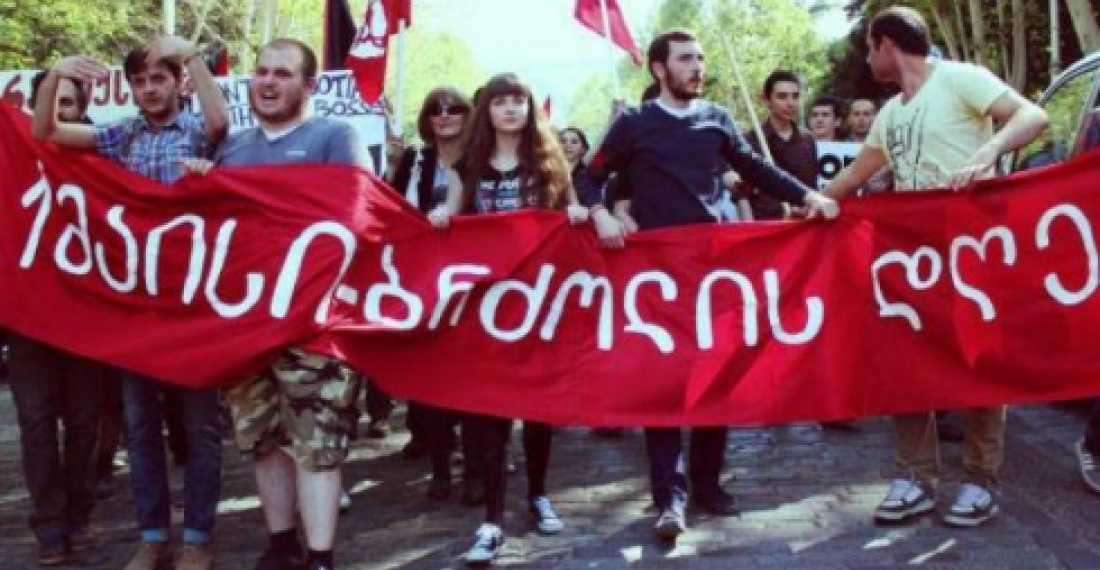There was a sharp reaction from Georgian civil society organisations yesterday after police broke up a May Day demonstration on Tbilisi's Rustaveli Avenue. The protest was organised by the Georgian grassroot movement Laboratory 1918 to highlight problems of poverty and youth unemployment in Georgian society. Several people were arrested but were released after a few hours. The incident has once more put the limelight on Georgian police tactics.
Commonspace.eu interviewed some of the co-ordinators of yesterday's march. They said that a peaceful demonstration had proceeded peacefully and without incident from the area around Aghmashenbeli Avenue towards the centre of the capital, Rustaveli Avenue. Once the demonstration which numbered several hundred people reached Rustaveli Avenue the police became very aggressive and scuffles erupted, during which several dozen demonstrators were arrested. The organisers say that amongst the policemen who broke down the demonstration were several who were not in uniform.
Several Georgian NGOs have demanded an investigation into why a peaceful demonstration was broken up by force. A spokesperson for the Georgian Ministry of Internal Affairs said that police intervened after demonstrators ignored repeated warnings not to block the traffic. A police source also said that demonstrators were "violating public order".
Laboratory 1918 is a Georgian grassroot organisation that emerged from amongst students of Tbilisi State University in 2011 mainly to demand reforms in the education sector and and to question decisions by the University administration. In 2012 the Movement was on the vanguard of huge public protests in Tbilisi following the prisoners abuse scandal. The Movement claims to be a broadly based left wing organisation with a strong social message and independent from any political party.
Commonspace.eu political editor said in a comment that "the incident is important not because of the size or nature of the demonstration but because it is an indication of the new higher standards that the Georgian public and particularly civil society activists are demanding from the new Government of Bidhzina Ivanishvili. Many activists are determined not to allow the new government to slide into the bad habits of its predecessor, which had a bad track record of dealing with any form of dissent. Therefore even incidents that in the greater scheme of things are small are now taken very seriously. This is a very healthy and positive development, and this attitude needs to be maintained if Georgia's fragile democracy is to succeed. It was interesting that Laboratory 1918 activists who were arrested in the incident rebuffed expressions of solidarity from the former ruling party of President Saakashvili, the United National Movement. The group is determined to stick up for its rights but is not ready to allow itself to be manipulated by political forces which it still considers to be undemocratic. This is a clear sign that georgian civil society is determined to remain on the vanguard of protecting Georgian democracy."
source: commonspace.eu
photo: protestors at yesterday's Mayday rally organised by Laboratory 1918 - picture courtesy of the Facebook page Lab1918 (official).







